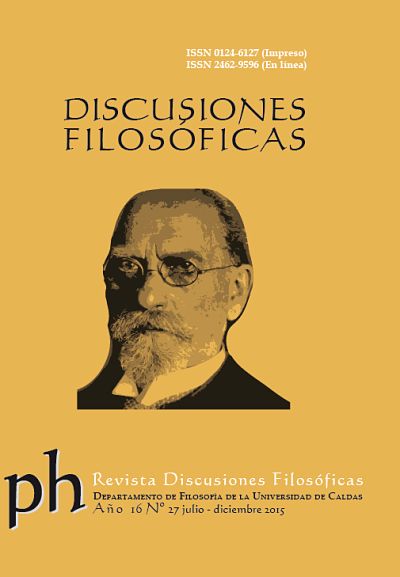Autores/as
Resumen
Este artículo es una defensa del concepto de tiempo en Bergson, en contra de las acusaciones de Heidegger en Ser y tiempo. Allí, Heidegger acusó el concepto de tiempo bergsoniano de incurrir en el mismo error de la tradición filosófica al tomar el tiempo como una sucesión espacial de “ahoras”. Esta es una acusación injusta porque los conceptos de tiempo en Bergson, duración y Élan vital, son precisamente opuestos a la concepción tradicional. De hecho, el concepto de tiempo según Bergson coincide con la concepción heideggeriana de temporalidad, la cual es esencial para su analítica existencial y ontología fundamental.
Palabras clave
Citas
Cassirer, E. The Philosophy of Symbolic Forms, Volume 3: The Phenomenology of Knowledge. New Haven: Yale University Press, 1985. Print.
---. The Philosophy of Symbolic Forms, Volume 4: The Metaphysics of Symbolic Forms. New Haven: Yale University Press, 1996. Print.
Deleuze, G. Bergsonism. New York: Zone Books, 1988. Print.
---. Cinema 1: The Movement-Image. Minneapolis: The Athlone, 1986. Print.
---. Cinema 2: The Time-Image. London: Continuum, 2005. Print.
Gunter, P.A.Y. Henri Bergson: A Bibliography. Ohio: Philosophy Documentation Center, Print.
Heidegger, M. Being and Time. New York: Harper & Row, 1962. Print.
Herder, G. S. “The Concept of Future in Bergson and Heidegger. A comparative study.” Indian Philosophical Qaurterly. 1977: 597-604. Print.
Mullarkey, J. Bergson and Philosphy. Notre Dame: University of Notre Dame Press, 1999. Print.
Seyppel, J. “A criticism of Heidegger’s time conception with reference to Bergson’s durée.” Revue International de Philosophie. 1956: 503-508. Print.
Solomon, J. “The Philosophy of Bergson.” Mind. Jan. 1911: 15-40. Print.

 pdf
pdf
 FLIP
FLIP

























